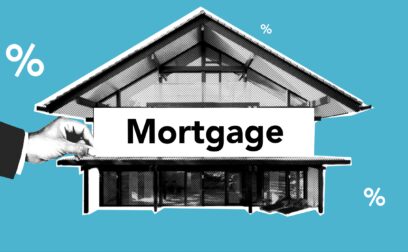By Damon Walford, CCO, Swoop
Seldom has the phrase “We live in uncertain times” seemed more apt. With the UK experiencing the combined trauma of COVID-19 and the upheaval of Brexit, the economy is facing one of its greatest challenges. And if you’re a small or medium-sized enterprise, whether trading internationally or domestically, the future may look bleak unless you have confidence in your customers and suppliers.
SMEs are the backbone of the UK economy, accounting for 99% of all businesses and a big slice of the UK’s GDP, but they have slimmer cash reserves and tighter margins than larger businesses. That makes them particularly vulnerable to economic shifts and changes in working capital.
Now that cash flow is being squeezed as never before, and unprecedented restrictions are being placed on trading, SMEs must do everything to mitigate risks and increase their operational efficiency and resilience. One thing is sure: withstanding the storm will depend on prudent financial management and insurance as much as on government bailouts.
Late payments and bad debts are among the biggest risks for all SMEs, and the financial challenge is likely to increase as the pandemic deepens and we head for a no-deal Brexit with fractured trading relationships and more complex cross-border arrangements.
Even in good times, bad debt costs UK businesses billions each year. In fact, before the COVID-19 crisis, a Dun & Bradstreet survey revealed that the average amount owed to retail businesses is £77k, while manufacturing owes £75k. Moreover, the Federation of Small Businesses confirmed in a press release on 29 June that the majority of small businesses (62%) had experienced late or frozen payments as a result of COVID-19.
Cash flow, data control, contingency planning
There are several steps you can take to place your business on a stronger footing. First, analyse your cash flow and have a clear understanding of everything on your sales ledger, and assess the credit rating of your trading partners. If you’re in control of your data and use analytics to evaluate risks, you’ll also be in better control of your finances and your business.
Look at the whole supply chain, as it’s not enough to know the financial position of your immediate trading partners. In other words, practise good portfolio management, something that may be lower on your list of priorities when trading conditions are good. If COVID-19 is the immediate challenge, you must also prepare for the post-Brexit world and how the new trading environment might affect your business if you operate in Europe.
If you access the same information that lenders do, you can also use data and analytics to understand your own credit score and identify ways to improve it so you can increase your chance of securing finance if you need it.
Insurance is another wise move in the current climate. While some businesses will take out bad debt protection as a matter of course, the uncertainties of COVID-19 and Brexit only underline the importance of mitigating risk. There are many options for bad debt protection and recovery. For example, Nimbla provides invoice insurance to protect you from unpaid invoices. If a customer is unable to pay because it becomes insolvent or enters administration, you can file a claim for 90% of the invoice value. This is a type of selective insurance, for individual invoices, but you can also find trade credit insurers who will insure your entire accounts receivable.
If debt recovery is what you need, companies such as Ko-bolt provide an alternative to traditional debt collection agencies. Ko-bolt provides debt resolution rather than debt collection and seeks to preserve the trading relationship between you and your customers. This may include negotiating an affordable repayment plan.
Money up front
Invoice finance is another way to protect your business. It means borrowing money against unpaid invoices, enabling you to receive an immediate cash injection to improve cash flow. Because some invoices incur lengthy credit terms, with payment deferred for up to 90 days, it can severely impact working capital and leave you exposed.
Invoice finance helps you unlock the value of unpaid invoices so you have money up front to pay employees and suppliers, and to invest in your business. A percentage of the invoice value will go to the lender as a fee for the service, and although this reduces your overall profit, it means the business is not starved of cash.
Banking and foreign exchange
COVID-19 and Brexit both have an impact on currency values, so how you manage your company finances and international transactions is another important consideration. If you trade internationally, you need to handle volatility and maximise your profits. Having a multi-currency business bank account allows you to hold multiple currencies in the same account and avoid paying unnecessary foreign exchange fees. Any business owner trading across borders will benefit from having pounds, euros, dollars and other currencies in a single account.
You can also manage foreign exchange by using specialist currency providers who can help you hedge against exchange rate swings. Methods include forwards contracts, where you fix an exchange rate for up to two years, and by using market orders, where transactions to buy or sell are only executed at a certain price.
To understand cross-border payments and compare international money transfer operators, see Swoop’s international payments page.
Preparing for an uncertain future
COVID-19 and Brexit have focused SMEs on cash flow. Forecasting and reserving are now critical for survival, and when the cash from government loans runs out, those who have taken steps to protect their businesses – whether through invoice finance, insurance or other risk mitigation measures – will be better placed to succeed in adverse markets.
Swoop are here to support you on your journey. Check out the Swoop marketplace or register here to build a profile and speak to the experts at Swoop.
































 yet? Register here!
yet? Register here!